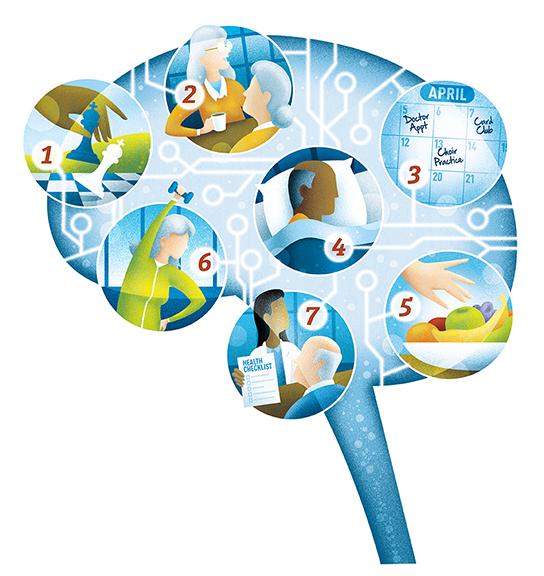You’ve probably had moments of memory loss from time to time, whether it’s forgetting where you put the car keys, what you needed to pick up at the grocery store, or the name of an acquaintance.
Those occasional memory lapses are perfectly normal and, according to the Mayo Clinic, a slight decline in memory and other thinking skills should be expected as you age—as long as they are manageable and not impairing your quality of life.
But if memory loss does begin disrupting your life, it can be an early sign of dementia, which the Mayo Clinic calls an umbrella term for a set of symptoms including impairment to memory, reasoning, judgement, language and other thinking skills. Dementia symptoms can be managed, but the disease cannot be reversed. It begins gradually and worsens over time, and can be caused by several diseases, most commonly Alzheimer’s disease.
Some potential early signs of dementia:
• Repeatedly asking the same questions
• Forgetting common words while speaking
• Confusing simple words
• Taking longer to complete familiar tasks
• Misplacing items in inappropriate places
• Getting lost in familiar areas
• Changes in mood or behavior for no apparent reason
If you experience any of these symptoms or have concerns about your memory for any other reason, share those concerns with your doctor. Tests can be used to find your level of impairment and the reason for it. Many causes, such as medications, head trauma, or emotional disorders, are treatable.
The Mayo Clinic recommends bringing a loved one to your doctor visit to help answer questions and provide observations. Depending on the findings, you might be referred to a specialist. As with any condition, a proper diagnosis is essential for proper treatment.



